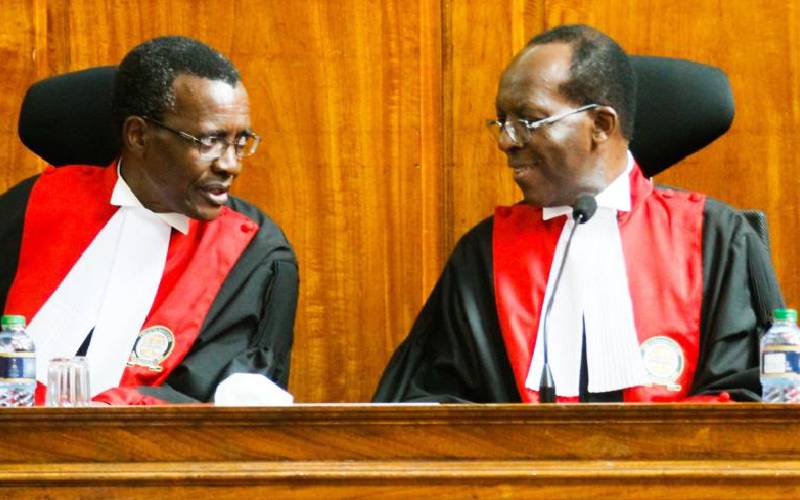×
The Standard e-Paper
Join Thousands Daily

Chief Justice David Maraga and Justice Jackton Ojwang during the hearing of the 2017 presidential election petition. [File, Standard]
A new twist has emerged in the investigation into the conduct of Supreme Court judge Jackton Ojwang.